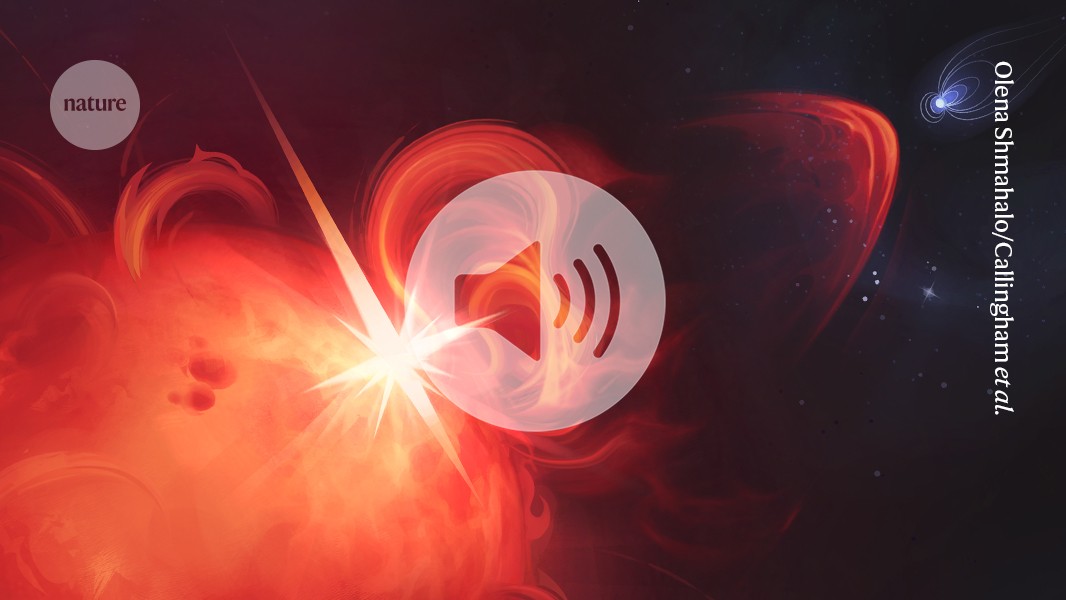You have full access to this article via your institution.
Download the Nature Podcast 12 November 2025
In this episode:
00:45 A coronal mass ejection from a distant star
Researchers have detected what they say is the strongest evidence yet of a coronal mass ejection (CME) coming from a star other than our Sun. CMEs are massive bursts of fast-moving plasma that can be detected thanks to the characteristic radio signal they produce. However, despite decades of searching, these signals have only been identified from the Sun. Now a team has identified a similar signal coming from a distant star in the Milky Way. They hope their discovery will lead to better understanding of the impact these colossal events might have on the atmospheres of exoplanets, and their chances of being habitable.
Research Article: Callingham et al.
12:28 Research Highlights
Video footage of a devastating earthquake provides a first-of-its-kind glimpse of a dramatic ground rupture — plus, a flock of comets seen outside our Solar System.
Research Highlight: Single video camera tells the story of deadly Myanmar quake
Research Highlight: A host of ‘exocomets’ swarms a distant star
14:29 The rare genetic variants that might increase the risk of ADHD
Attention-deficit/hyperactivity disorder (ADHD) is a condition that affects around 1 in 20 young people but its underlying causes are not fully understood. Now a team of researchers show that three rare genetic variants are implicated in an increased risk of ADHD, which might play a role in the neurons involved in dopamine signalling. Although this work provides a better understanding of the complex genetics at play, the authors caution more research is needed to unpick the complex interplay of other factors involved in ADHD.
Research Article: Demontis et al.
18:41 Briefing Chat
A high-resolution digital map for Roman roads, and how speaking more than one language could slow brain ageing.
Nature: ‘Google Maps’ for Roman roads reveals vast extent of ancient network
Nature: Want a younger brain? Learn another language
Never miss an episode. Subscribe to the Nature Podcast on Apple Podcasts, Spotify, YouTube Music or your favourite podcast app. An RSS feed for the Nature Podcast is available too.


